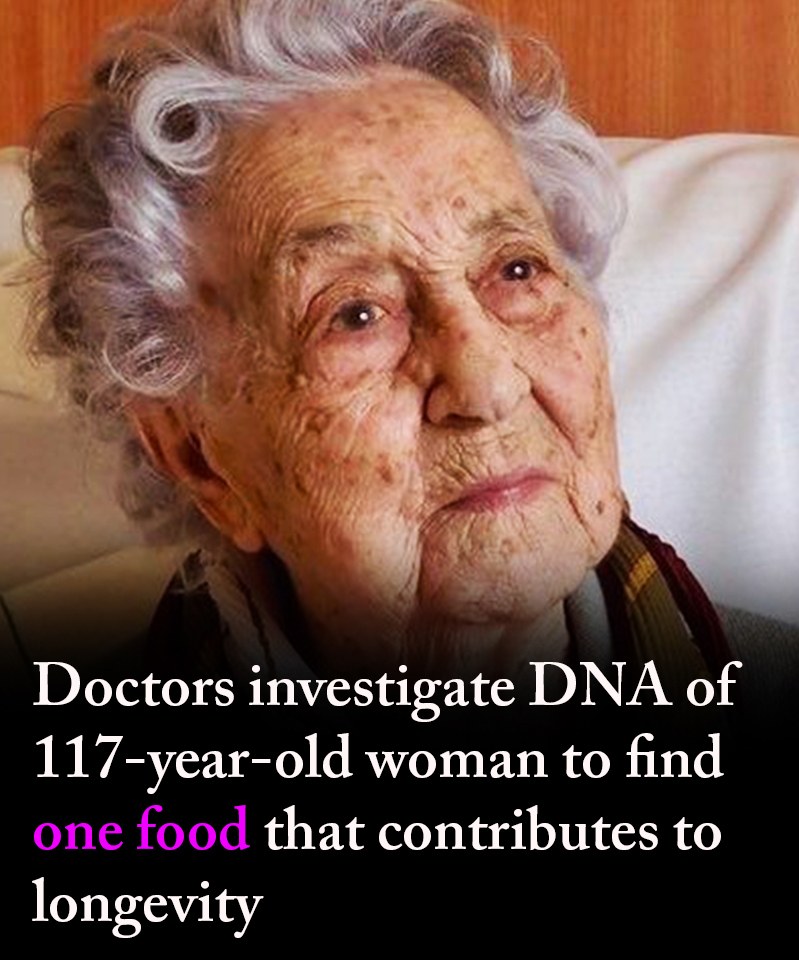Before her passing in 2024, Maria made a selfless decision: she allowed scientists to study her DNA in hopes of helping others live longer, healthier lives. Researchers from the University of Barcelona and the Josep Carreras Leukaemia Research Institute discovered that Maria’s biology seemed to resist many of the typical signs of aging.
According to lead scientist Dr. Manel Esteller, her genetic profile showed “a separation between being old and being sick.” Despite her advanced age, her cholesterol, cell function, and inflammation levels appeared similar to those of someone decades younger. Her immune system was unusually well-preserved, allowing her to stay healthy and active even in her later years.
But her longevity wasn’t only in her genes — her daily habits also played a major role. Maria never smoked, rarely drank alcohol, and made sure to move her body every day, even after turning 100. She believed that walking kept her mind clear and her spirit young. She surrounded herself with love and laughter, telling her family that “forgiveness and humor are the best medicine.”
One detail especially caught the researchers’ attention: her lifelong habit of eating yogurt every morning. She enjoyed a local Catalonian brand called La Fageda, known for its natural ingredients and probiotic content. While Maria simply believed it helped her digestion, scientists now think it might have supported her overall well-being.
Probiotic-rich foods like yogurt are known to promote a healthy gut microbiome — the community of bacteria in our digestive system that influences immunity, energy, and mood. Combined with her Mediterranean-style diet of vegetables, olive oil, fruit, and fish, Maria’s routine likely created a balance that supported her body’s natural defenses.
Her mornings also began with a homemade cereal smoothie made from a blend of grains, milk, and honey — a nutrient-rich drink that gave her steady energy throughout the day. “She nourished herself like someone ahead of her time,” said Dr. Esteller.
Researchers also discovered that her telomeres — the protective ends of chromosomes that shorten with age — were unusually long and intact. This suggested her cells remained strong and regenerative well into her final years. Scientists believe that her balanced diet, low stress, and strong family ties all worked together to preserve her health.
“The secret to long life,” Dr. Esteller concluded, “is half inherited and half created.”
In her final years, Maria became known affectionately as “The Super Grandmother of Catalonia.” She shared messages of hope and reflection online, encouraging others to live fully and appreciate every stage of life. “Don’t chase youth,” she once said. “Chase peace.”
Her legacy continues to inspire researchers and everyday people alike. The study of her genome is opening new possibilities in the science of aging — helping experts better understand how lifestyle, diet, and emotional health can influence longevity.
Yet perhaps Maria’s greatest lesson has nothing to do with science at all. She taught her loved ones that true longevity isn’t only measured in years, but in how those years are lived — with kindness, purpose, and gratitude.
Those who knew her say she was happiest in her garden, tending flowers in the morning sun, a bowl of yogurt beside her. Even in her final years, she greeted every day with a smile. “She never complained,” her granddaughter once said. “She always saw life as a gift.”
In a world often searching for quick fixes, Maria Branyas Morera’s life reminds us that the most powerful secret to longevity may be the simplest one — to live each day with love, balance, and joy.

